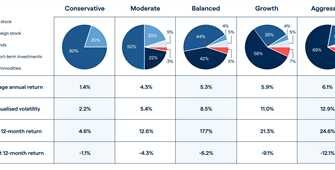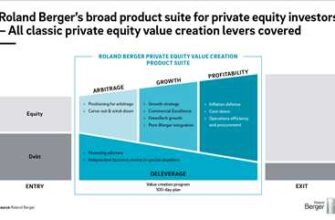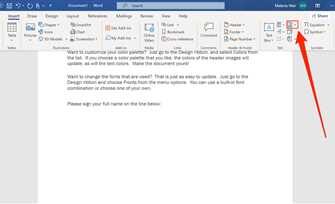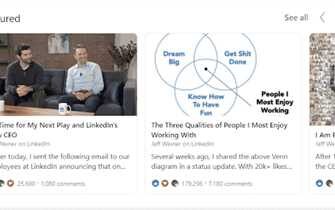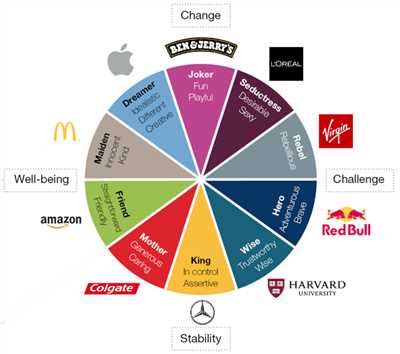
When it comes to marketing, every brand is unique. They have their own set of traits and characteristics which define their personality. While you need to convey everything about your brand in just a few seconds, it is important to grab the attention of your customers and communicate with them on an emotional level. This is where brand personality comes into play.
Brand personality is the human-like characteristics that a brand promotes. It helps to build a connection with the customers and encourages them to not only buy your product or service, but also to love and relate to your brand. A brand with a well-defined and unique personality won’t be just another option for the customers, but the only right choice they want to make.
So, how can you achieve this? One way is through the design and creative elements of your brand. For example, the colors, typography, and overall visual identity can help convey your brand’s personality. But it’s not only about the visuals. The way you communicate with your clients through your voice and tone is equally important. Your brand’s voice should be consistent and should reflect the personality traits you want to convey.
Another way to build brand personality is through social media. Social media platforms provide an instant and open way to communicate with your customers. You can use social media to present your brand’s personality through engaging posts, videos, and even live interactions. By being active on social media, you can build a loyal community of customers who love and support your brand.
Brand Personality: How to Build a More Human Brand
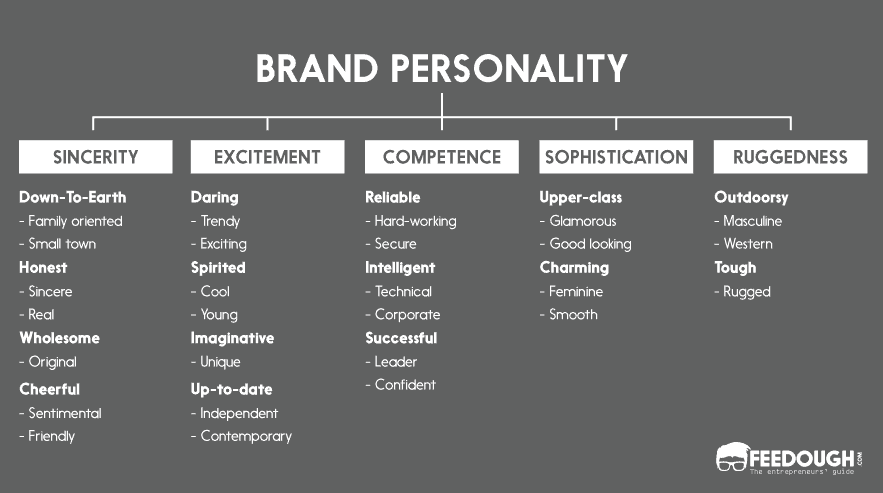
When it comes to building a successful brand, it is important to remember that your customers are human beings. They want to connect with something more than just a logo or a product. They want to feel an emotional connection, like they are interacting with a real person.
So how can you build a more human brand? Here are 6 key traits and examples to help you achieve this:
| Trait | Example |
| 1. Define Your Brand’s Personality | If your brand was a person, how would you describe them? Are they funny, serious, or adventurous? This will help you determine the voice and tone you should use to communicate with your customers. |
| 2. Be Unique | Stand out from your competitors by offering something different. Find a niche market or create a unique product that sets you apart. |
| 3. Show Empathy | Understand your customers’ needs and emotions. Connect with them on a deeper level by showing that you care. |
| 4. Be Social | Engage with your customers on social media platforms. Share their stories, reply to comments, and be part of the conversation. |
| 5. Use Creative Design | Design your brand’s visuals in a way that grabs attention and conveys your brand’s personality. |
| 6. Be Open and Honest | Transparency is key in building trust. Be open about your brand’s values, processes, and anything that your customers would want to know. |
By following these steps, you can build a brand that promotes human connection and attracts the right customers. Remember, it’s not just about what you sell, but how you make people feel. So grab a drink, sit back, and start building a more human brand!
Why do brands need a personality
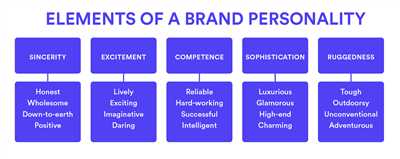
Having a strong brand personality is crucial for businesses in today’s competitive market. A brand’s personality is what sets it apart from its competitors and helps it to stand out. It is what makes customers choose one brand over another, even if the products or services are essentially the same. But why is it so important for brands to have a personality?
Firstly, a brand personality promotes recognition. When customers see your brand, they should instantly recognize it and know what it represents. Having a distinct and unique personality helps to achieve this. It allows customers to develop an emotional connection with your brand, which is far more powerful than just a simple transaction.
Secondly, having a brand personality helps to convey and communicate your brand’s voice. Every brand has a unique voice, and this is what sets the tone for all of your marketing efforts. It helps to define how your brand will speak to and engage with your customers.
Another reason why brands need a personality is that it helps build trust and loyalty with customers. When a brand has a defined personality, it becomes more relatable and human. Customers are more likely to trust a brand that they can connect with on an emotional level.
A brand personality is also important because it helps to attract customers. In a world where consumers are bombarded with marketing messages every second, having a strong and distinctive personality can grab their attention. It creates a memorable brand that customers won’t easily forget.
Lastly, having a brand personality can help to open up new opportunities for your business. When customers love and connect with your brand, they are more likely to share it with others. This word-of-mouth marketing can lead to new customers and more business growth.
So how can a brand build a personality? It starts with understanding your target audience and what traits they value in a brand. From there, you can design your brand’s personality to align with those traits. Creative examples like social media posts, marketing campaigns, and brand storytelling can help bring your brand’s personality to life.
In conclusion, having a brand personality is essential for businesses that want to differentiate themselves in the market. It helps to convey and communicate your brand’s voice, build trust and loyalty with customers, attract new customers, and open up new opportunities. So if you’re a brand owner or marketer, make sure you invest time and effort into defining and building your brand’s personality.
Why Brand Personality is Important
Brand personality is an essential aspect of every successful brand. It is what sets a brand apart from its competitors and creates an emotional connection with customers. While customers may want instant gratification when buying a product or service, they also want to be able to relate to the brand on a deeper level.
A well-defined brand personality helps attract customers and create loyalty. It gives a brand a unique identity and helps it stand out in a crowded marketplace. When customers are able to connect with a brand emotionally, they are more likely to trust the brand and become repeat customers.
Brand personality traits need to be present in everything a brand does, from its marketing materials to its customer interactions. By conveying a consistent emotional personality, brands can ensure that customers remember them and associate positive feelings with their products or services.
For example, creative design and a distinctive brand voice can help a brand build a personality that customers love. When customers see a brand’s logo or hear its jingle, they should instantly recognize and feel a connection with the brand.
Building brand personality is not something that can be achieved overnight. It requires careful thought and consideration of the brand’s values and target audience. By defining a brand’s personality, marketing tasks become more focused and effective.
How a brand chooses to communicate its personality can vary depending on the industry and target market. Some brands may use humor to connect with their audience, while others may choose a more serious tone. The key is to find a unique personality that resonates with customers and promotes a positive perception of the brand.
Social media platforms provide an open and powerful opportunity for brands to showcase their personality and grab the attention of potential customers. By sharing engaging and authentic content, brands can build connections with their audience and create a strong brand identity.
Here are 6 examples of brands that have successfully built and conveyed their brand personality:
- Coca-Cola: Coca-Cola has built a brand personality that promotes happiness and togetherness. Their marketing campaigns often feature people enjoying Coca-Cola and spreading joy.
- Apple: Apple’s brand personality is built on innovation and simplicity. They are known for their sleek design and user-friendly products.
- Nike: Nike’s brand personality is centered around motivation and empowerment. Their marketing messages encourage customers to push their limits and achieve their goals.
- Starbucks: Starbucks has a brand personality that promotes community and comfort. Their stores are designed to be cozy and welcoming, and their marketing emphasizes the value of connecting with others.
- Red Bull: Red Bull’s brand personality is all about adventure and energy. Their marketing focuses on extreme sports and outdoor activities.
- Disney: Disney’s brand personality is synonymous with magic and nostalgia. Their movies and theme parks create a sense of wonder and joy.
By building a strong and consistent brand personality, brands can create a lasting impression on their customers and differentiate themselves from competitors. It is an important part of any successful marketing strategy and shouldn’t be overlooked.
6 – How to communicate your brand’s personality
Communicating your brand’s personality is an essential part of building a strong and memorable brand. It is not only important to define your brand’s personality, but it is equally important to find the right ways to convey it to your target audience. Your brand’s personality is what sets you apart from your competitors and helps attract and build a loyal customer base.
One of the most effective ways to communicate your brand’s personality is through creative marketing and design. While your brand’s visual identity, such as your logo and website design, can help grab people’s attention and make an instant impact, it is your brand’s voice and tone that will help convey its personality in a more meaningful way.
When developing your brand’s voice, think about the emotions you want to evoke in your customers. Do you want them to feel excited and energized? Or maybe calm and relaxed? By defining the emotions you want your brand to associate with, you can create a unique voice that resonates with your target audience.
Showcasing your brand’s personality through examples and storytelling can also help create an emotional connection with your audience. Share stories that highlight how your brand’s personality aligns with your target audience’s values and interests. By doing so, you not only present your brand in a more human and relatable way, but you also give your audience a reason to actively engage with and share your brand’s story.
Another way to communicate your brand’s personality is through social media. Social media platforms give you an open space to be more creative and experimental with your brand’s messaging. This is where you can show a different side of your brand and connect with your audience on a more personal level. By being active and engaging on social media, you can build a closer relationship with your customers and create a community of brand advocates.
Lastly, don’t forget that every interaction, be it online or offline, is an opportunity to communicate your brand’s personality. From the way you respond to customer inquiries to how you present your brand at events, every touchpoint needs to reflect your brand’s personality consistently.
In conclusion, if you want to build a strong brand with a unique and memorable personality, you need to actively communicate it to your target audience. By using a creative and emotional voice, showcasing your brand’s personality through examples and storytelling, being active on social media, and ensuring consistency in every interaction, you will be able to attract and retain customers who love and resonate with your brand’s personality.

